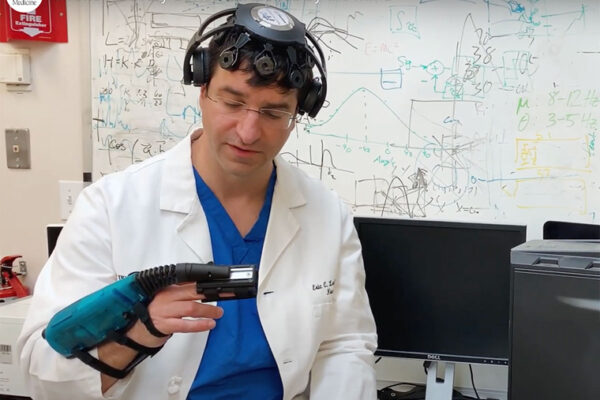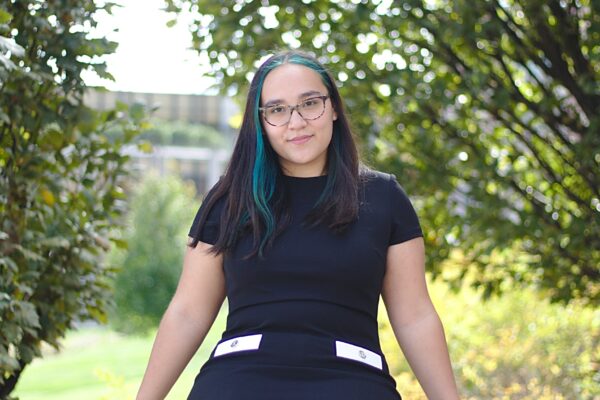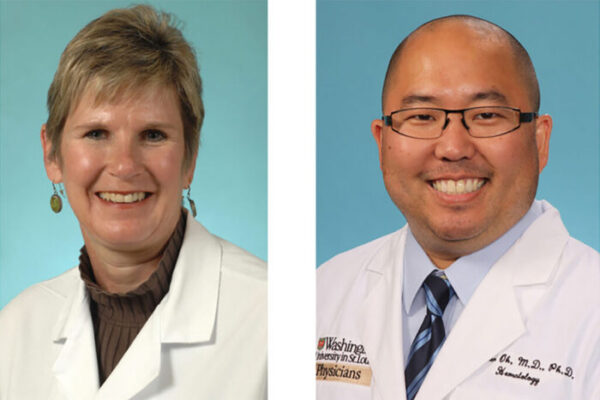IpsiHand stroke-recovery device named product of year by science society
The IpsiHand, an innovative stroke-recovery device developed by a WashU startup that helps stroke patients recover arm and hand function by retraining their brains, has received the 2021 Pantheon Product of the Year Award from California Life Sciences.
Home-monitoring program for COVID-19 is effective, bridges digital divide
A home-based health monitoring program developed by Washington University School of Medicine and BJC HealthCare has proven invaluable in helping to track the progress of patients who test positive for the virus but aren’t sick enough to be hospitalized.
Colditz, Chang to study multiple myeloma
Graham Colditz and Su-Hsin Chang, both at the School of Medicine, received a five-year $3.2 million grant from the National Cancer Institute of the National Institutes of Health (NIH) for multiple myeloma research.
Silberman wins Promega D.O.O.R.S. scholarship
Miriam Silberman, a microbiology major in the Department of Biology in Arts & Sciences, won a Diversification of Our Research Scientists (D.O.O.R.S.) scholarship from Promega.
Nettles receives award from Society for Neuroscience
Sabin Nettles, a graduate student at the School of Medicine, received the Pre/Postdoctoral Next Generation Award from the Society for Neuroscience in recognition of her work introducing neuroscience to young students through the Brain Discovery initiative.
Moyle wins Next Generation Investigation Award
Austin Moyle, a chemistry graduate student working with Michael Gross in Arts & Sciences, won a Next Generation Investigator Award from the California Separation Science Society.
WashU part of $65 million NIH study of schizophrenia in young people
Washington University School of Medicine is part of a major international study aimed at identifying causes and effects of the early stages of schizophrenia in young people, with the goal of improving early diagnosis and treatment. Daniel Mamah, MD, is the lead investigator at the WashU site.
Tague receives Harold Amos faculty development award
Laneshia K. Tague, MD, assistant professor of medicine at the School of Medicine, has received the Harold Amos Medical Faculty Development Award.
Majerus, Oh tapped to co-lead hematology division
Elaine M. Majerus, MD, PhD, and Stephen T. Oh, MD, PhD, have been selected to co-lead the Division of Hematology in the Department of Medicine at the School of Medicine.
Nava, Wong receive career development grants
Ruben G. Nava, MD, and Brian W. Wong, both assistant professors of surgery at the School of Medicine, have been awarded career development grants through the American Society of Transplantation.
View More Stories







